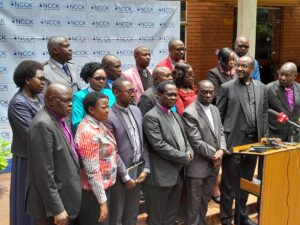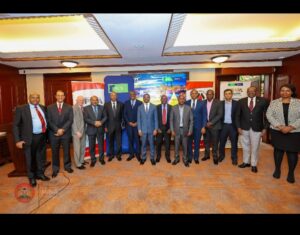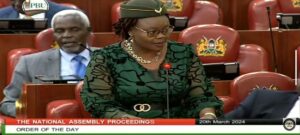
By Dr Michael Kariuki, Secretary General of Harm Reduction Society Kenya.
As in most of the modern world, Kenyans are not immune to partaking in pleasures that are ultimately harmful to our health. The temptations of this ‘forbidden fruit’ – whether it’s alcohol, smoking or junk food – require a nuanced and pragmatic response. To the relief of our willpower as well as our physical well-being, harm reduction strategies have emerged as the compassionate solution.
At its core, harm reduction is a philosophy that recognises the reality of human behaviour and seeks to minimise the adverse consequences, rather than impose strict abstinence-based solutions. It has proved not only effective but indispensable in saving lives, especially in the context of Africa, where unique challenges underscore the urgency of such approaches.
Harm reduction first gained credence in the 1980s, amid the HIV/AIDS epidemic. Needle exchange programmes emerged as a response to the soaring rates of HIV transmission among injecting drug users. Rather than condemning drug use, these programmes provided clean needles, education and access to healthcare, mitigating the spread of HIV without requiring individuals to cease substance use altogether.
This pragmatic approach marked a paradigm shift in public health, acknowledging that people will engage in risky behaviours regardless of legal or moral frameworks.
Africa, with its diverse cultures and socio-economic disparities, presents a complex landscape for public health interventions. Here, despite the challenges posed by misconceptions, religion and morality, harm reduction strategies have already proved their worth.
Take, for instance, the prevalence of injection drug use in parts of sub-Saharan Africa. In regions like Tanzania and Kenya, where heroin trafficking routes intersect, injecting drug use has become a significant driver of HIV transmission. In such contexts, needle exchange programmes and opioid substitution therapy have been instrumental in curbing the spread of HIV.
Beyond drug use, harm reduction extends its reach to other public health crises gripping the continent. In the realm of sexual health, initiatives promoting condom use and access to HIV testing have been paramount in reducing transmission rates.
Furthermore, harm reduction strategies have been vital in addressing the growing issue of alcohol-related harm, ranging from liver disease to road traffic accidents. Programmes focusing on moderation, safer drinking practices and community support have made tangible strides in mitigating alcohol-related harms.
More recently, Africa has also witnessed the introduction of innovative nicotine products that are helping to reduce the harms suffered by smokers around the world. Safer alternatives like vapes and oral pouches are helping smokers to quit their habit by switching to options that pose a fraction of the risk. So it is with the low-sugar confectioneries now on offer to ‘chocoholics’, and other healthier versions of favourite foods.
However, the journey towards comprehensive harm reduction in Africa is still not plain sailing. Stigma, entrenched cultural norms and limited resources continue to pose formidable barriers to implementation and scale-up. Moreover, the political will and leadership required to drive policy reform and allocate resources to evidence-based interventions are yet to fully emerge.
As a result, the need to overcome such obstacles has led to the establishment of Harm Reduction Society Kenya (HRS Kenya). Focusing on the harmful effects of alcohol, tobacco and cannabis, HRS Kenya will provide a community for harm reduction practitioners, community workers, organisations, researchers and policymakers.
HRS Kenya will engage in and support evidence-based research on harm reduction and will strive to create awareness among all sectors of the society, including the general public, media and lawmakers, about the life-saving potential of harm reduction policies.
As Kenya confronts evolving public health challenges, the imperative to embrace harm reduction has never been clearer. From combating HIV/AIDS to addressing substance use disorders and beyond, harm reduction embodies a compassionate and evidence-based approach to public health.
As we navigate the complexities of the 21st century, let us heed the lessons of harm reduction and work together to build a world where health is a universal right, not a privilege.











